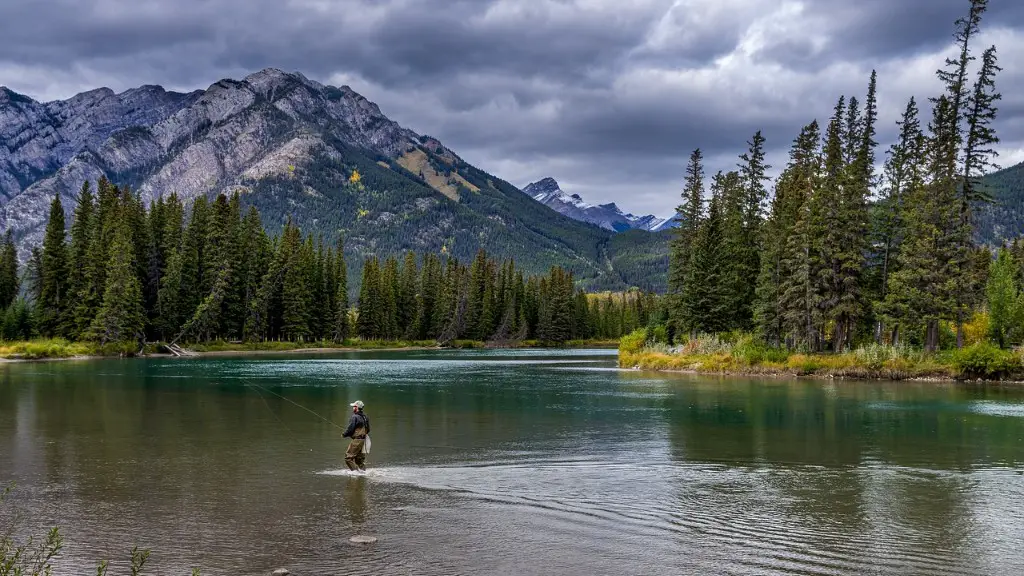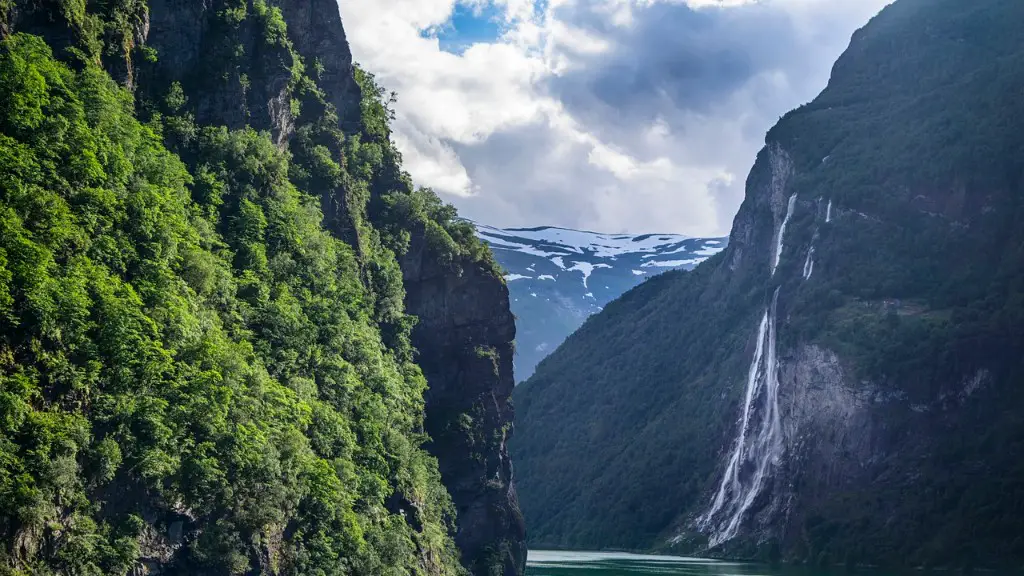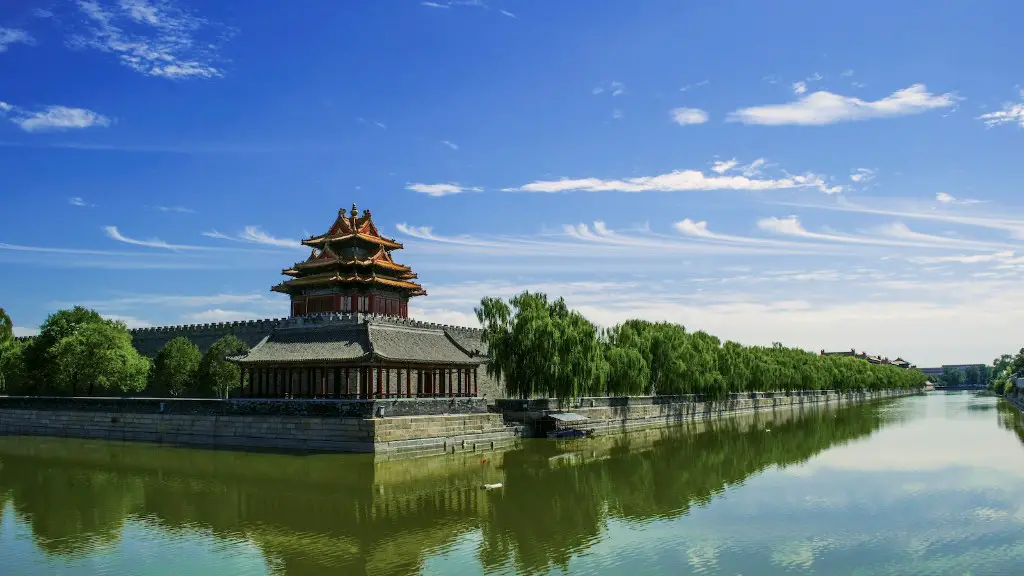The Nile River has been an important artery of maritime transport since ancient times, with vessels ranging from small traditional boats and barges to large passenger ferries. Today, many people still sail the Nile in a variety of ways: for business, for pleasure, for leisure and for tourism. With its unique mix of cultural sites, remote lodges and small villages, the river remains a popular destination for travelers.
As the longest river in the world, the Nile flows from Uganda to Egypt, a journey of just over 4,000 miles. Along with having incredible cultural and historical significance, the river is also an integral part of modern life in its respective countries. For many, the river offers a way to make a living, while providing the means to travel between villages and regions along its banks.
People have long used sailing vessels to move goods, materials, and people up and down the river. The ancient Egyptians utilized papyrus reed boats to transport people and cargo, while others used animal-drawn barges to transport goods. Today, the most popular means of transport are Nile cruises, which allow travelers to take in the sights and sounds of the river while navigating its length. There are also many privately owned and operated boats, as well as river taxis that transport people, goods and cargo up and down the river.
In recent years, the number of vessels sailing the Nile has increased, primarily due to the rise in the number of people taking advantage of Nile cruises and tours. Whether it’s a leisurely journey up the river with friends, or a romantic river cruise for two, a sailing vessel offers the best way to experience the wonders of the world’s longest river. While some travelers may opt for a traditional felucca sailboat, there are also many luxury options available, such as modern motorboats and yachts.
The presence of vessels on the river has had a positive impact on both the local population and the environment. For instance, the demand for boats has resulted in increased employment opportunities, while providing a way for people to transport goods and services that otherwise would not be available.
The Nile has also become an important tourist destination and has attracted international attention. Major cities in Egypt, such as Luxor and Aswan, have become popular destinations for travelers, and many hotels, resorts, and cruise ships have sprung up to accommodate the influx of tourists. Additionally, many local businesses such as restaurants, bars, and shops have opened up along the banks, providing a valuable boost to the local economy.
Moreover, the presence of boats has reduced stress on the environment. Boat traffic has reduced the amount of trash and pollutants that are dumped into the river, while providing a way to monitor the cleanliness and quality of the water. In addition, the people that use the river are more aware of the importance of conserving the environment and are more likely to take part in conservation efforts.
Impact of Boats on Local Communities
The presence of vessels on the river has had a great impact on the local communities along its banks. Fishing, which is a major source of income for most people living near the river, has become more profitable as boats bring in essential supplies, as well cargo and tourists. Additionally, businesses like restaurants and guides in tourist cities have gone up, generating more employment opportunities and giving people living near the Nile a greater degree of economic security.
The Nile River has also become an important means of travel for people living in the region. Boats on the river provide a quick and hassle-free way to move between towns and villages, as well as a way to transport goods and services that would otherwise be difficult to access. This has not only saved travelers time, but has also made it easier for local businesses to reach a wider range of customers and spread their services.
What’s more, the presence of vessels on the river has caused an increase in cultural exchange. Tourists who take to the river can learn about the culture, people, and history of the country, while locals can gain a better understanding of foreign cultures and lifestyles. This helps break down cultural barriers, which can be beneficial for both sides.
Safety and Security Concerns
It is important to note that sailing the Nile River can present risks for travelers, particularly those traveling in small boats or traditional felucca sailboats. As mentioned earlier, the river can be a dangerous place, so it is essential to be prepared and to use caution when travelling on the water. Travelers should ensure that their vessel is seaworthy and well-maintained, and always carry life jackets and emergency supplies.
Additionally, it is important to be aware of the security situation on the Nile. There are reports of piracy, crime, and other forms of violence on the river, and travelers should use common sense and caution when travelling. It is also important to be aware of the fact that most boats are not insured, so travelers should be prepared to bear any financial losses associated with accidents or theft.
Environmental Protection
Protecting the environment is an urgent issue for those who use the river. In recent years, efforts have been made to reduce the impact of boat traffic on the environment. This includes the implementation of tighter regulations on boat traffic, as well as the use of pollution control devices to reduce waste and contamination.
Moreover, boat builders are increasingly turning to sustainable materials such as bamboo and reused plastics in their craftsmanship. This helps reduce their impact on the environment and is a great example of how sustainability can be incorporated into the daily practices of those who sail the Nile.
Finally, local communities are being encouraged to get involved in protecting the environment by joining campaigns and initiatives dedicated to preserving the river. This includes educating tourists on the importance of conserving the river and its ecosystems, as well as engaging in clean-up initiatives in public areas and joining forces with environmental conservation organizations.
Benefits of Sailing the Nile
Sailing the Nile offers a unique opportunity for travelers to witness the incredible beauty of the world’s longest river and its diverse cultures. From the majestic temples and ruins of ancient Egypt to the stunning sunsets over the river banks, the Nile offers travelers a trip of a lifetime.
Not only is travelling on the river a great opportunity to experience the natural and cultural wonders of Egypt, but it also provides travelers with an opportunity to support the local communities. By taking part in boats excursions or cruises, or simply by staying in one of the many river lodges or resorts along the river, travelers can make a positive impact on the local economy and contribute to the long-term sustainability of the Nile.
Final Thoughts
Sailing the Nile River is an incredible experience for travelers looking to explore the culture, history, and beauty of the longest river in the world. From luxury cruises to private boats, there are a plethora of options available for travelers looking to experience a journey on the Nile. Furthermore, the presence of boats and vessels on the river has had a positive impact on the local communities, providing employment opportunities and boosting the economy, while helping to protect the environment.




